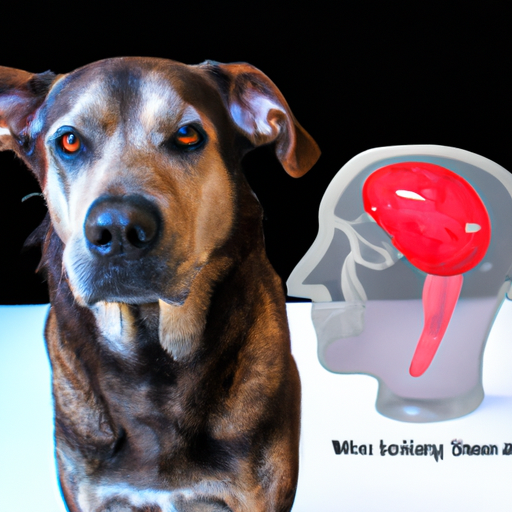As a doting caregiver, you know that your furry friend’s health is of paramount importance. But, did you know that dogs can suffer from vestibular disease? This often-misunderstood condition can be quite frightening, but it’s important to understand what causes it and how it can be managed.
1. Understanding Vestibular Disease
Vestibular disease is a condition that affects your dog’s balance and coordination. It’s caused by an issue in the vestibular system, which is located in the brain and inner ear. When this system is disrupted, it can lead to symptoms such as dizziness, loss of balance, and even nausea in your dog.
- Ear Infections: An inner ear infection can cause inflammation that disrupts the functioning of the vestibular system.
- Trauma: Any injury to the head can potentially damage the vestibular system.
- Tumors: While rare, tumors in the brain or inner ear can also cause vestibular disease.
2. Spotting the Symptoms
Recognizing the symptoms of vestibular disease in your dog is the first step towards getting them the help they need. Here are some common signs:
- Loss of balance
- Head tilting to one side
- Rapid, uncontrolled eye movement
- Nausea or vomiting
3. Diagnosis and Treatment
If you suspect that your dog is suffering from vestibular disease, it’s crucial to seek veterinary help immediately. Your vet will likely perform a series of tests to determine the underlying cause of the symptoms.
| Test | Purpose |
|---|---|
| Physical examination | To check for obvious signs of vestibular disease |
| Blood tests | To rule out other potential causes |
| MRI or CT scan | To visualize the brain and inner ear |
Once diagnosed, the treatment for vestibular disease will depend on the underlying cause.
4. Living with Vestibular Disease
While vestibular disease can be scary, many dogs can live full, happy lives with the condition. It’s all about managing the symptoms and ensuring your dog is comfortable. Regular check-ups, medication, and a loving, supportive environment can all play a part in your dog’s overall well-being.
5. Preventing Vestibular Disease
Prevention is always better than cure. Regular vet check-ups, maintaining a healthy diet, and preventing trauma or injuries can help keep your dog’s vestibular system healthy.
Frequently Asked Questions
Q: Can vestibular disease be cured?
A: Depends on the cause. Some causes are treatable, while others can be managed with long-term care.
Q: Is vestibular disease contagious?
A: No, it’s not contagious. It’s caused by issues in the dog’s own vestibular system.
Q: How long does a vestibular disease episode last?
A: Episodes can last from a few minutes to several days. Each dog’s experience is unique.
Q: Can vestibular disease lead to deafness?
A: In some cases, if the inner ear is affected, it can lead to hearing loss.
Remember, when it comes to your dog’s health, you’re their best advocate. Stay informed, stay vigilant, and never hesitate to seek veterinary help if you’re concerned.



